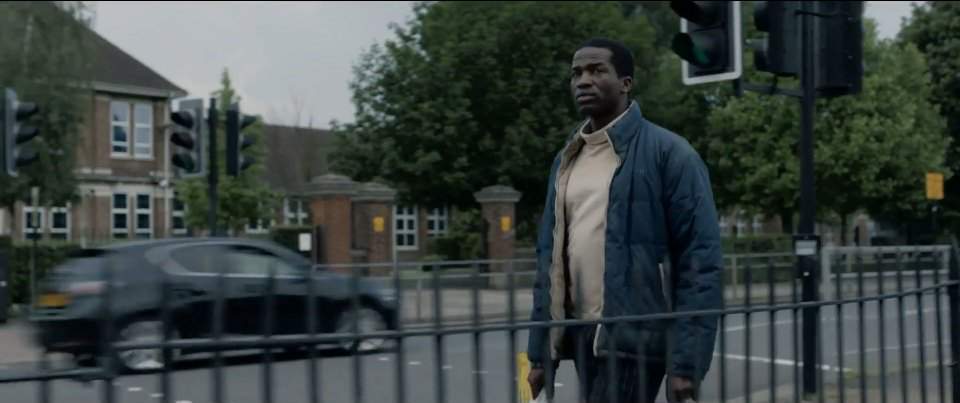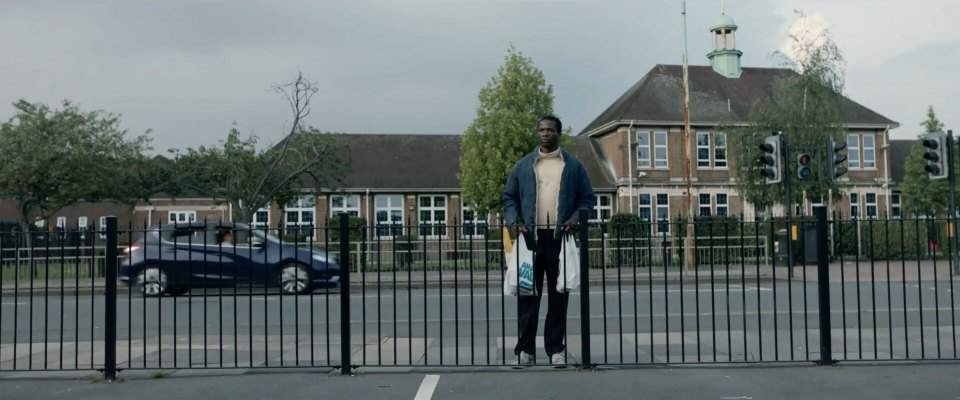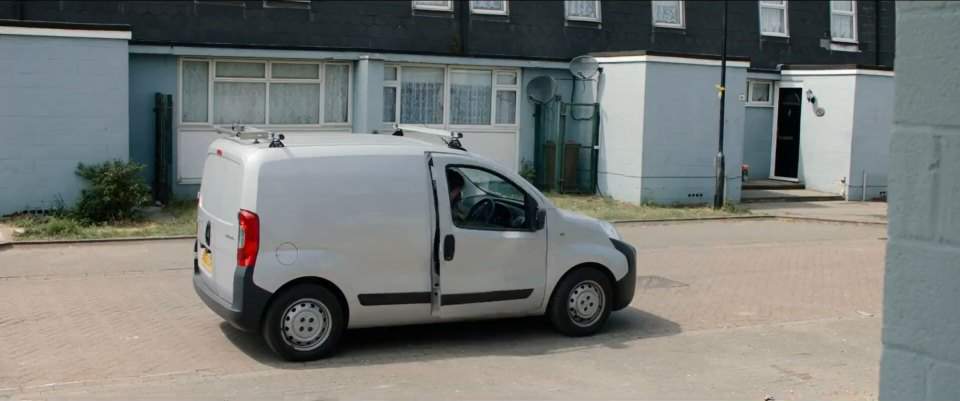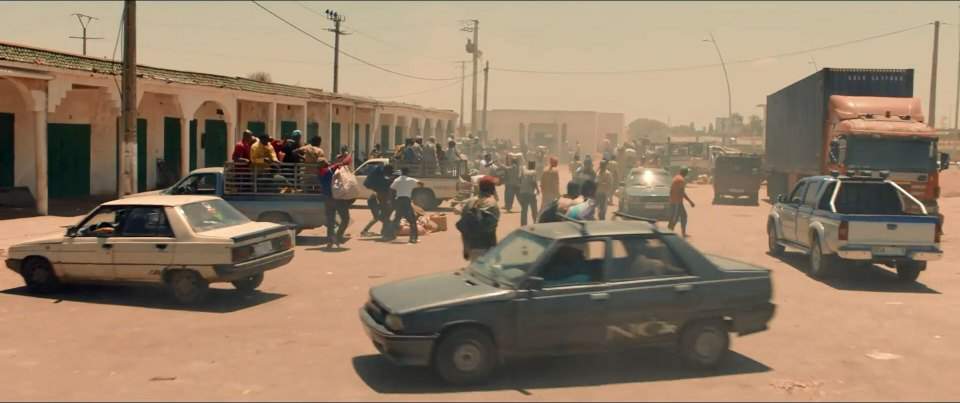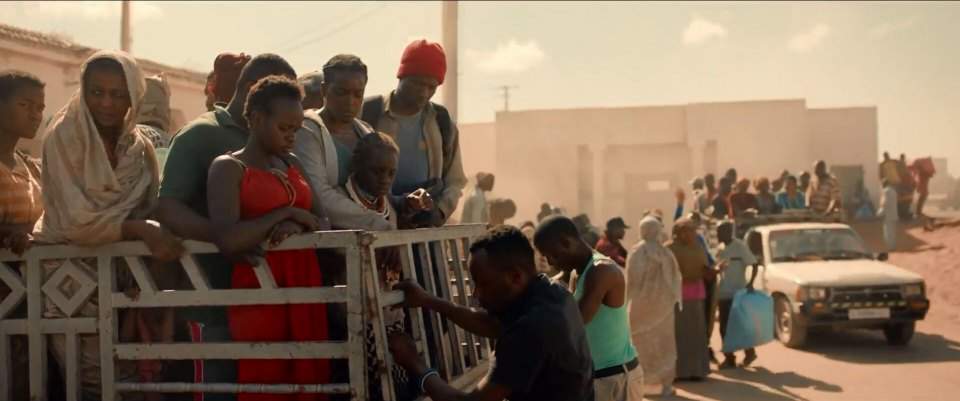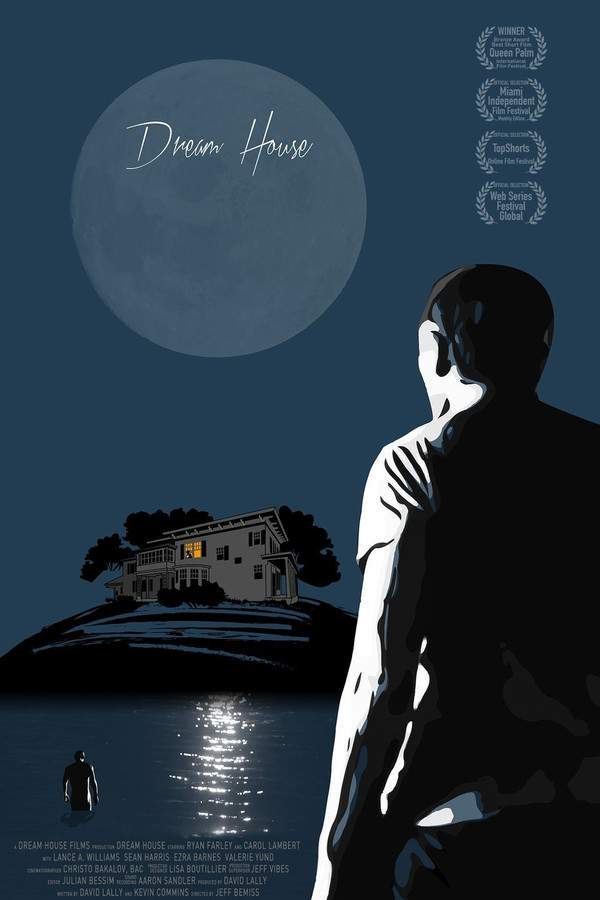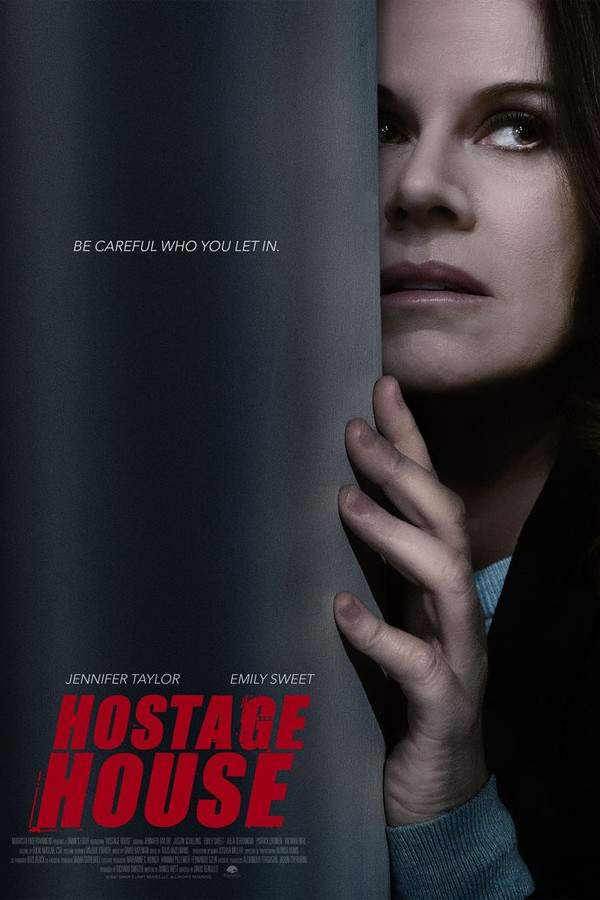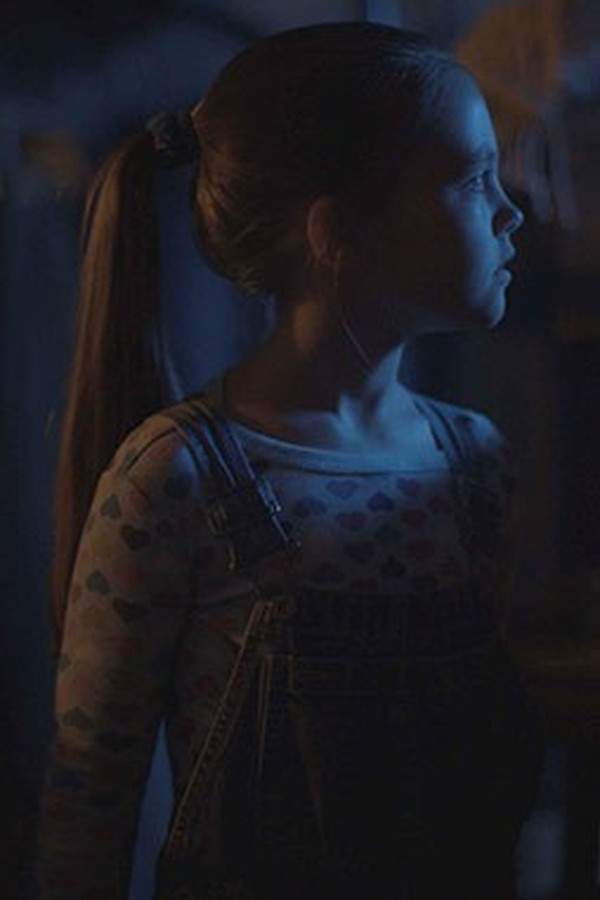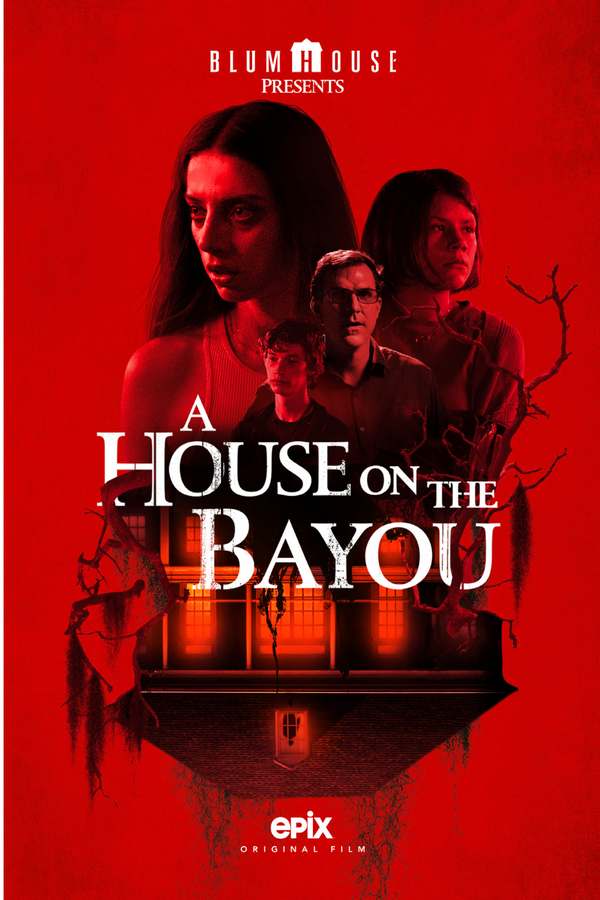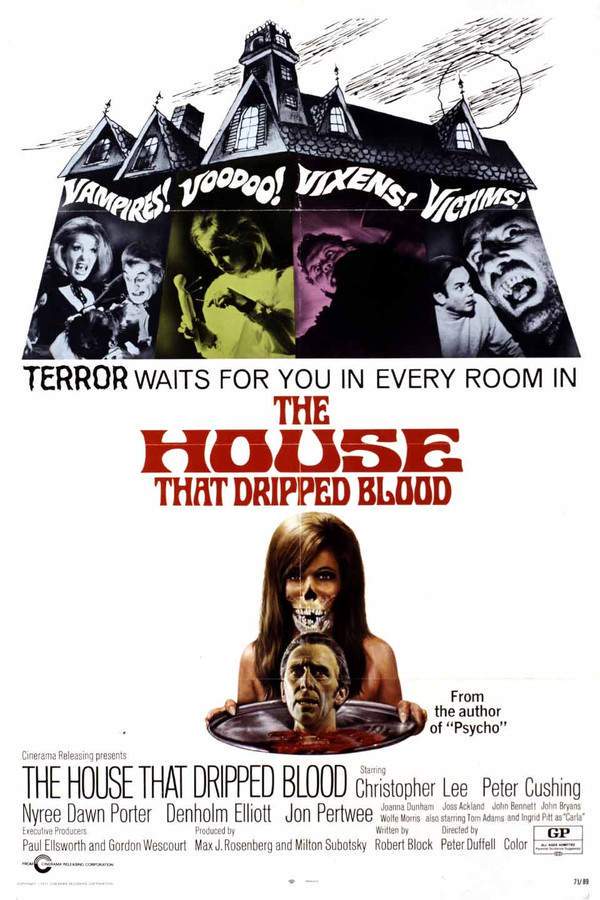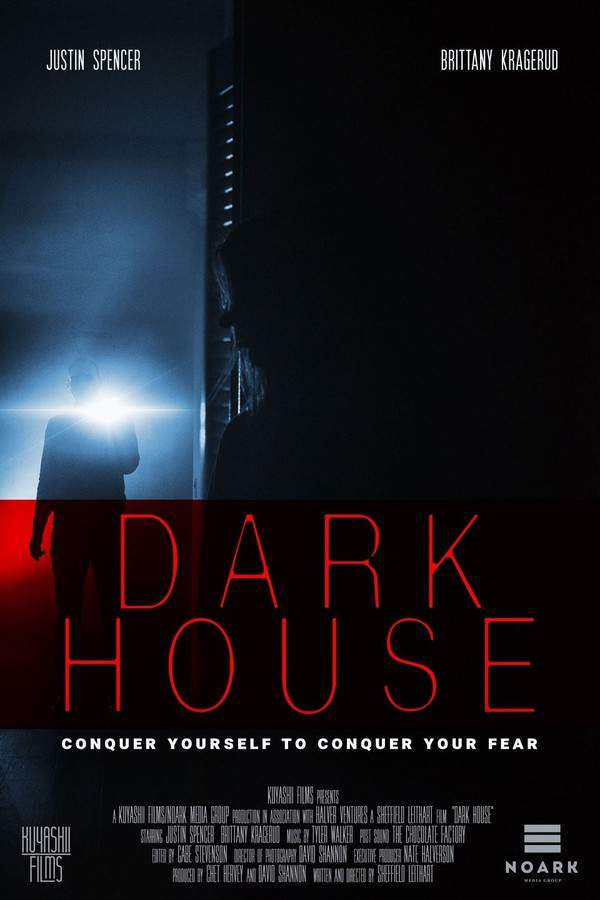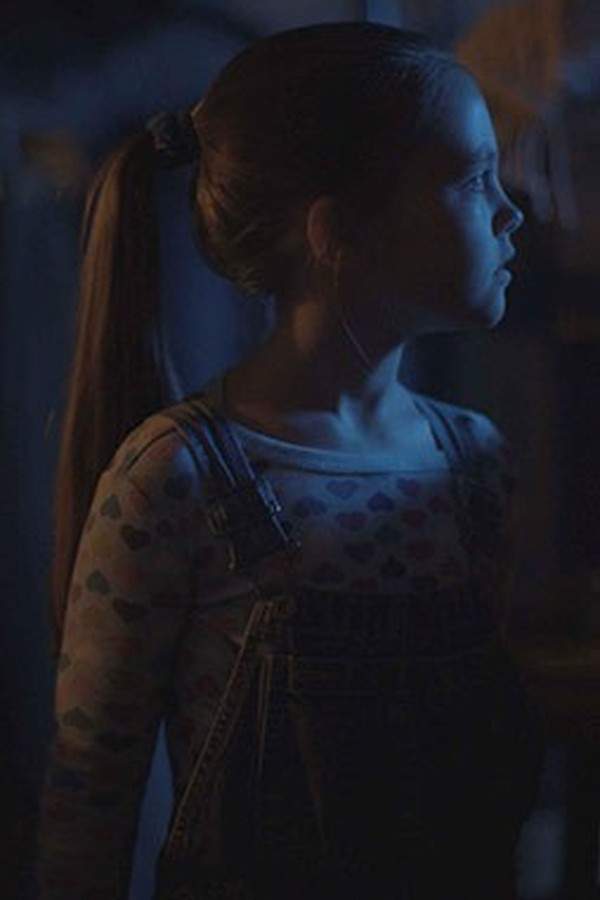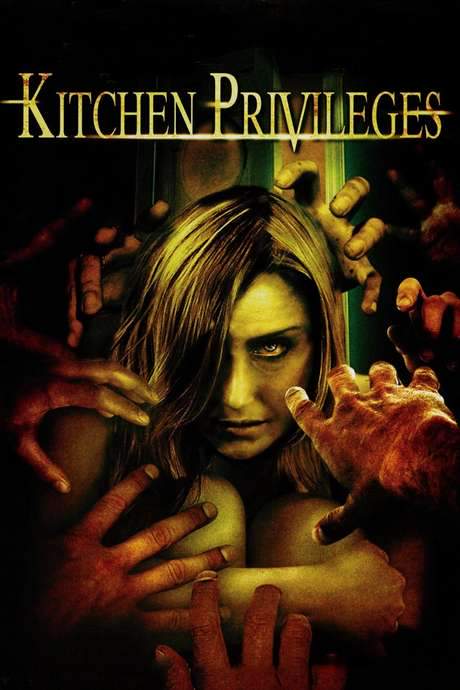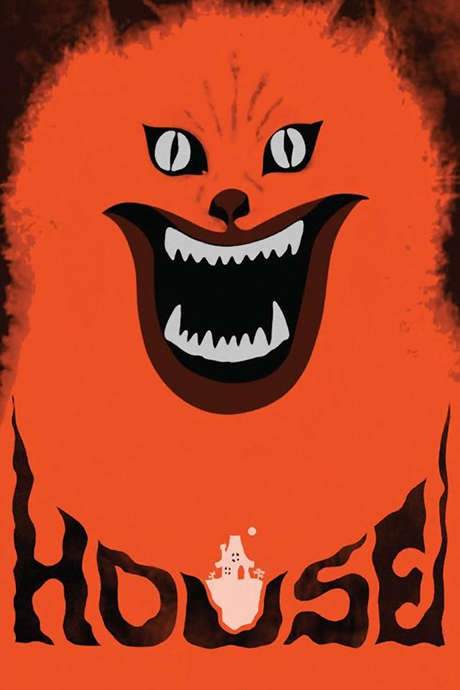His House 2020
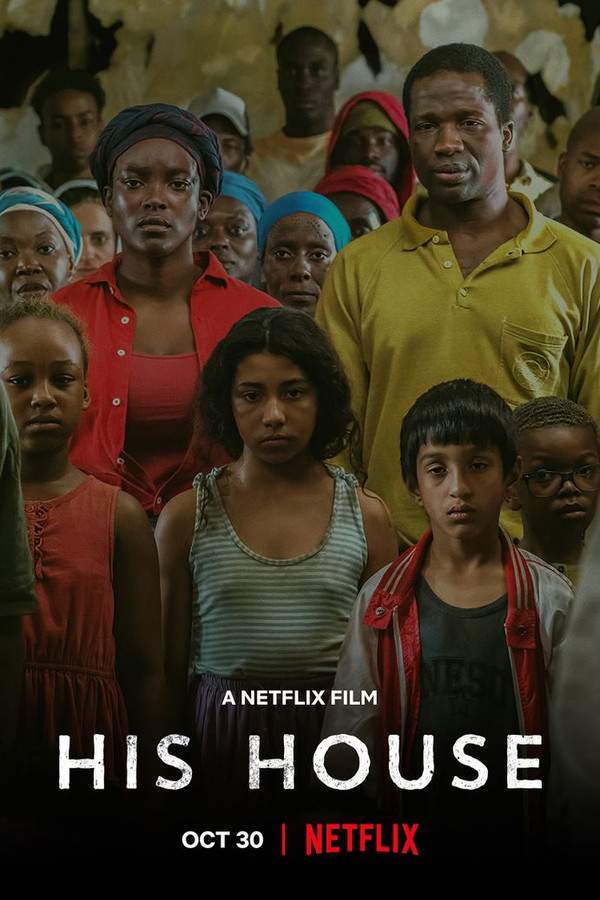
Fleeing war-torn South Sudan, a refugee couple attempts to rebuild their lives in an English town. However, they soon discover that their past trauma and the horrors they escaped have followed them. As they struggle to adjust to their new surroundings, a sinister presence emerges, blurring the line between reality and nightmare and threatening to destroy their fragile hope for a future.
Does His House have end credit scenes?
No!
His House does not have end credit scenes. You can leave when the credits roll.
Meet the Full Cast and Actors of His House
Explore the complete cast of His House, including both lead and supporting actors. Learn who plays each character, discover their past roles and achievements, and find out what makes this ensemble cast stand out in the world of film and television.

Matt Smith
Mark Essworth

Robert Ryan

Andy Gathergood
Church Man

Bradley Banton
Phillip
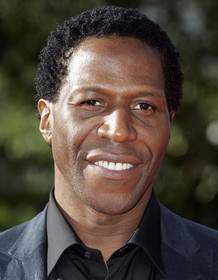
Cornell John

Emily Taaffe
Dr. Hayes

Gamba Cole
George

Javier Botet
The Witch
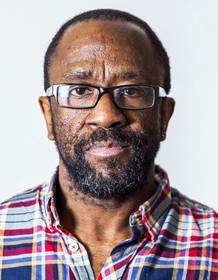
Kevin Layne
The Cameroonian

Lola May
Nyagak's Mother

Malaika Wakoli-Abigaba
Nyagak
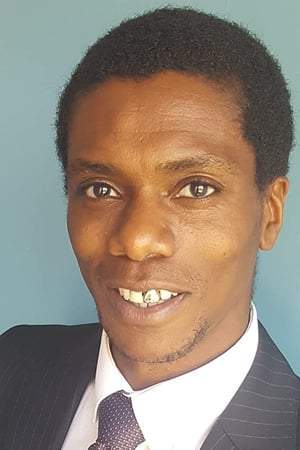
Mark Gooden

Maureen Casey
Detention Custody Officer
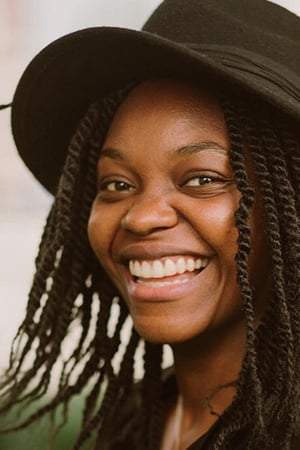
Mevis Birungi

Rene Costa

Sope Dirisu
Bol Majur

Vivien Bridson

Vivienne Soan
Neighbour

Wunmi Mosaku
Rial Majur

Yvonne Campbell
South Sudanese Woman
External Links and Streaming Options
Discover where to watch His House online, including streaming platforms, rental options, and official sources. Compare reviews, ratings, and in-depth movie information across sites like IMDb, TMDb, Wikipedia or Rotten Tomatoes.
Ratings and Reviews for His House
See how His House is rated across major platforms like IMDb, Metacritic, and TMDb. Compare audience scores and critic reviews to understand where His House stands among top-rated movies in its genre.

The Movie Echo Score
His House demonstrates a compelling fusion of genre innovation and emotional weight. Critics consistently highlight mindful direction and striking cinematography, while users note an immersive atmosphere that sustains tension throughout. The narrative leverages a surprising final twist and measured pacing to explore immigrant trauma, although a few viewers found the story overly reliant on that revelation. Its thematic depth and sensory unity leave a memorable impression that balances supernatural horror with real-world resonance.
The Movie Echo Score Breakdown for His House

Art & Craft
In terms of art and craft, His House benefits from assured direction and meticulously composed visuals. Critics commend Remi Weekes’ framing choices and dynamic camera movement, while users appreciate the controlled editing that sustains narrative momentum. Production design underlines thematic undertones through restrained set dressing. Overall, its visual execution significantly enhances the film’s atmospheric impact.

Character & Emotion
When it comes to character and emotion, His House presents nuanced performances and palpable emotional stakes. Critics highlight strong portrayal of grief and survivor’s guilt, while users note authentic chemistry between the lead couple. The script allows subtle character arcs to unfold against supernatural elements. Ultimately, the film’s emotional core resonates with thoughtful depth.

Story & Flow
In terms of story and flow, His House delivers an original premise anchored by a decisive final twist. Critics praise its reinvention of haunted house conventions and deliberate pacing, while some viewers found the plot heavily dependent on its surprise element. Engagement fluctuates when narrative relies on thematic exposition. Overall, the storyline remains compelling despite occasional reliance on a singular reveal.

Sensory Experience
When considering sensory experience, His House excels in crafting sustained tension through atmospheric sound design and an understated score. Critics and users alike point to its immersive ambience, with haunting audio cues and cohesive visual style enhancing the unsettling mood. Soundtrack choices complement the restrained color palette. In sum, the film’s sensory layers amplify its pervasive sense of dread.

Rewatch Factor
When evaluating rewatch factor, His House offers enduring thematic layers that encourage subsequent viewings. Critics note its interpretive depth and rich symbolic imagery, while users value its cultural commentary intertwined with horror elements. Although the twist may lose surprise on repeat watches, the film’s nuanced exploration of trauma retains engagement. Overall, it maintains lasting appeal through its layered narrative.

72
Metascore
6.8
User Score


100%
TOMATOMETER

73%
User Score

6.4 /10
IMDb Rating

64
%
User Score

3.4
From 238 fan ratings
Take the Ultimate His House Movie Quiz
Challenge your knowledge of His House with this fun and interactive movie quiz. Test yourself on key plot points, iconic characters, hidden details, and memorable moments to see how well you really know the film.
His House Quiz: Test your knowledge on the haunting tale of Bol and Rial's journey from South Sudan to their new life in Britain.
What country do Bol and Rial flee from?
South Sudan
Somalia
Nigeria
Ethiopia
Show hint
Awards & Nominations for His House
Discover all the awards and nominations received by His House, from Oscars to film festival honors. Learn how His House and its cast and crew have been recognized by critics and the industry alike.
74th British Academy Film Awards 2021



Full Plot Summary and Ending Explained for His House
Read the complete plot summary of His House, including all major events, twists, and the full ending explained in detail. Explore key characters, themes, hidden meanings, and everything you need to understand the story from beginning to end.
Bol (Sope Dirisu) and Rial (Wunmi Mosaku) are refugees who bravely flee from the war-torn landscapes of South Sudan, accompanied by their daughter, Nyagak. Their perilous journey involves crossing stormy Mediterranean waters on a crowded motorboat filled with other hopeful refugees, all yearning for a brighter future in Europe. Unfortunately, tragedy strikes during this treacherous passage, as they manage to survive, but not without losing their beloved daughter and many others along the way.
Three months later, they are granted probational asylum in the UK, but the grim reality sets in as they are provided with a run-down house on the outskirts of London, its walls peeling and the furnishings hardly livable. They are subjected to stringent restrictions, living under the constant threat of deportation. Their new life is overshadowed by the challenges of racism and hostility from their neighbors in the tenement.
As they start to adapt to their surroundings, they meet their case worker, Mark, portrayed by Matt Smith, who cautiously expresses his hopes that they are among “the good ones.” Striving for acceptance, Bol attempts to assimilate into British culture by embracing local customs—singing football songs, urging Rial to eat with utensils instead of their hands, and even changing his attire. In contrast, Rial holds on tightly to their heritage, cherishing Nyagak’s necklace, wearing vibrant clothes, and opting to eat on the floor, further emphasizing their cultural ties.
However, their new home harbors strange and unsettling experiences. Both Bol and Rial begin witnessing visions of their daughter Nyagak and a mysterious male figure who seem to escape into the very walls that surround them. The reality of their haunted existence becomes clearer when Rial identifies the malevolent presence as an apeth, or “night witch.” She recounts a tale from her village about a man who unknowingly provoked an apeth, leading to a life filled with torment.
Determined to reclaim their daughter, Rial believes that if they can repay the debt owed to the apeth, they might have a chance to see Nyagak again. Confusion reigns as they try to comprehend what this debt truly entails. In a desperate act, Bol decides to burn everything they brought with them, but the haunting continues, creating tension between him and Rial. After realizing their living conditions are intolerable, Bol seeks assistance from Mark to find a new place, fabricating a story about rats infesting their home, but he proves unsuccessful.
Feeling increasingly tormented, Bol’s behavior deteriorates as he frantically searches for the apeth, risking their asylum status. Rial, sensing the distress, expresses her desire to leave. In a moment of desperation, Bol locks Rial inside their home while he calls upon the apeth himself, who pierces through his guilt by declaring him a thief who has taken what was never his to possess. The apeth offers an agonizing trade of his life for Nyagak’s, yet Bol resolutely rejects the deal, leading to a period of emotional paralysis that engulfs him in rage.
Meanwhile, Rial escapes their harrowing home only to find herself transported back to South Sudan, where echoes of her past unfold in a familiar classroom filled with former friends—victims of a dreadful massacre. Reminded of the violence that forced them away, she reunites with Bol, and they seek a way out as turmoil ensues around them. Their escape takes a dark turn when desperation strikes; Bol sees a child resembling Nyagak and seizes the opportunity, claiming her as his own to board a bus headed for safety. The heart-wrenching scene of Nyagak’s real mother left behind, as gunfire erupts, adds to the emotional turmoil of their choices.
Eventually, they find themselves crossing unforgiving seas once again, where tragedy claims Nyagak once more, forcing Bol to confront his past and offer restitution to the apeth. As Bol prepares to merge with this malevolent spirit, Nyagak miraculously reappears to Rial. In a final act of defiance against the apeth, Rial chooses to save Bol by slitting the creature’s throat, breaking the cycle of torment.
When Mark returns for an inspection, he finds their home transformed and repaired. Bol and Rial, now resolved, declare their intention to stay and make a life for themselves, saying that Rial has vanquished the witch that haunted them. With a mix of somber acceptance and hope, they choose to move forward in their new home, haunted by their past, yet determined to live alongside its shadows.
In a poignant vision, the couple stands together with other immigrants at the threshold of their new life, peacefully looking towards the possibility of a brighter future, juxtaposed against the haunting memories of those they have left behind.
Uncover the Details: Timeline, Characters, Themes, and Beyond!

Coming soon on iOS and Android
The Plot Explained Mobile App
From blockbusters to hidden gems — dive into movie stories anytime, anywhere. Save your favorites, discover plots faster, and never miss a twist again.
Sign up to be the first to know when we launch. Your email stays private — always.
Watch Trailers, Clips & Behind-the-Scenes for His House
Watch official trailers, exclusive clips, cast interviews, and behind-the-scenes footage from His House. Dive deeper into the making of the film, its standout moments, and key production insights.
Cars Featured in His House
Explore all cars featured in His House, including their makes, models, scenes they appear in, and their significance to the plot. A must-read for car enthusiasts and movie buffs alike.
His House Themes and Keywords
Discover the central themes, ideas, and keywords that define the movie’s story, tone, and message. Analyze the film’s deeper meanings, genre influences, and recurring concepts.
His House Other Names and Titles
Explore the various alternative titles, translations, and other names used for His House across different regions and languages. Understand how the film is marketed and recognized worldwide.
Similar Movies To His House You Should Know About
Browse a curated list of movies similar in genre, tone, characters, or story structure. Discover new titles like the one you're watching, perfect for fans of related plots, vibes, or cinematic styles.
Quick Links: Summary, Cast, Ratings, More

What's After the Movie?
Not sure whether to stay after the credits? Find out!
Explore Our Movie Platform
New Movie Releases (2026)
Famous Movie Actors
Top Film Production Studios
Movie Plot Summaries & Endings
Major Movie Awards & Winners
Best Concert Films & Music Documentaries
Movie Collections and Curated Lists
© 2026 What's After the Movie. All rights reserved.














